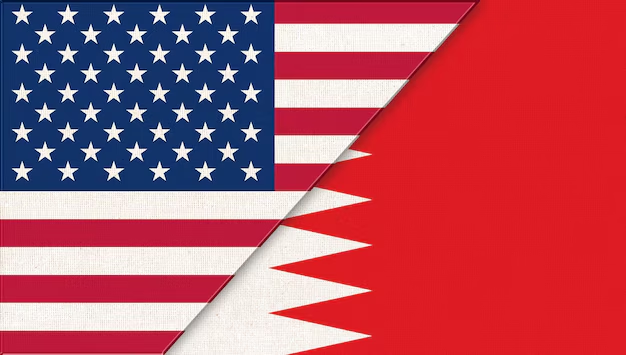Bahrain-The Paradise of the Ancients has Become the Isle of Comfort for the Modern Visitor
By: Habeeb Salloum/Arab America Contributing Writer
Known to the ancient civilizations of Mesopotamia as the ‘Island of Bliss’, Bahrain, then called Dilmun, is a tiny island-state surrounded by the waters of the Arabian Gulf. The smallest country in the Middle East it was, for centuries, a religious centre for the Sumerians, Babylonians and Assyrians who all believed it to be holy. A Sumerian poem tells us about the sacred island paradise of Dilmun – a place closely resembling the Garden of Eden where sickness and death did not exist and sweet water flowed.
In the Epic of Gilgamesh, it is described as paradise. Indeed, the greatest wish of the people in the surrounding lands was, when they died, to be buried in this tiny isle – 700 sq km (270 sq mi), about the size of Singapore. Even though the state consists of 33 islands, the Island of Bahrain, about 50 km (31 mi) long and 12 km (7.5 mi) wide, makes up 85% of the country.
Its aura as a sacred island to the ancients could have some validity since there are to be found on the island some 172,000 burial mounds – a good number dating back more than 5,000 years.
Bahrain-Manama-Al-Fatih MosqueUnlike many other parts of the Arabian Peninsula, this island in antiquity was blessed with an abundance of fresh water. The mixture of the salt and sweet water, which bubbles up from under the sea led to its Arabic name ‘Bahrain’ meaning ‘two seas’.
Along with banking and industry, Bahrain’s past mythical allurements and up-to-date modern facilities have created an atmosphere conducive to tourism. Top class hotels, superb restaurants, all types of sport facilities and greenery are now to be found everywhere. About 30% of the island has been planted with palms and other trees intertwined with shrubs. The northern tip, about 5 km (3 mi) wide, is now almost all green.
Bahrain-Tree of Life-Said to be Hundreds of Years OldThe island is the most relaxed, inexpensive, and liberal destination in the Gulf. Its 1.7 million population, a little less than half Bahraini nationals – the remainder being, in the main, from the U.K. and the Indian sub-continent, live as is said in a very tolerant society. English is more often heard than Arabic and there are a half dozen Christian churches and a small community of indigenous Christians who still call Bahrain home.
Bahrain-Bird-Shaped Oil RidIn this multicultural environment, offering a fascinating blend of eastern and western cultures, Bahrainis behave with modesty, dignity and practice their long tradition of hospitality. There are excellent public services, the country is impeccably clean, crime is rare and Bahraini women are to be found in all facets of life. This live and let live atmosphere has helped to attract annually just over 3 million visitors but due to the Covid-19 restrictions, the number has decreased significantly since March 2020.
Aiding in the promotion of investment and tourism is one of the busiest airports in the region and a large financial services sector with offshore banking. Above all, the 25 km (15.5 mi) $1 billion King Fahad Causeway, linking Saudi Arabia to Bahrain, one of the most expensive bridges in the world to build, it is drawing heavy spending visitors from oil-rich Saudi Arabia.
Pearling-Habeeb Salloum Sailing on Dhow-BahrainManama, the capital, a city of some 200,000, is the focal point for most of the visitors. Its historic and tourist sites enhance the contemporary sections, bursting with towering hotels and modern skyscrapers, overflowing with banks and innumerable offices of well-known world companies.
Pearling-Bahrain-Pearl DiversAround its historic centre, Bab Al-Bahrain, the souks are ablaze with colour. They are filled with exotic scents, oozing from the spices which edge a rainbow of textiles displayed in an attractive fashion. In this world of oriental colour people from many lands converse in Babel of tongues dominated by Arabic and English.
Pearling-Bahrain-Pearl DiverAfter a trip to this historic isle, one will find that Bahrain’s label as ‘Pearl of the Gulf’ is not an exaggerated designation, especially for those visitors who come in the cool months when the days are warm and the nights cool. During this climatically pleasant time, one will get a taste of Arabia and will likely remember the tableau in the National Museum, which depicts a scene from the Epic of Gilgamesh in which reference is made to Bahrain as the ‘Paradise of Dilmun’.








